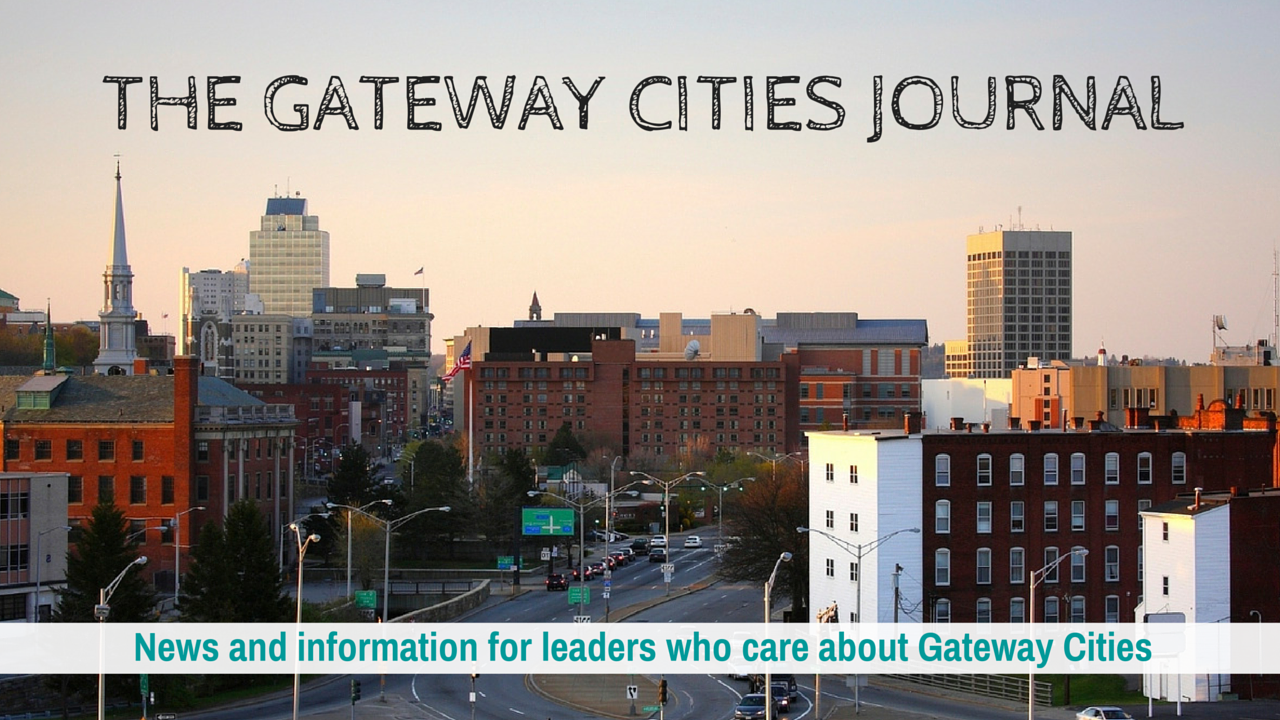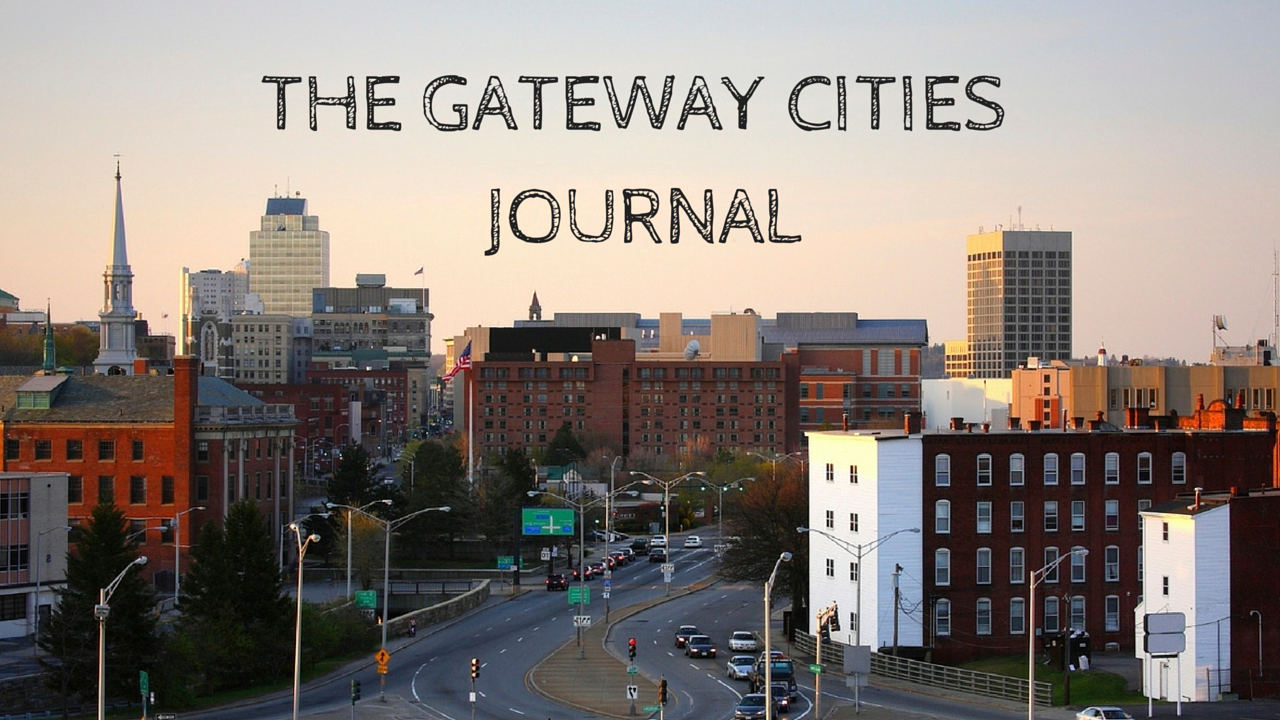
The fate of our Gateway Cities lies in their schools. From growing a skilled workforce to maintaining healthy neighborhoods, public education will be the deciding factor. Significant progress has been made, but a lot more needs to happen to put these school systems in a stronger position to drive economic growth and renewal. Some of this work is contingent on the state thinking much harder and more broadly about how it lives up to its constitutional obligation to ensure all students have access to a quality education. However, it’s also important to recognize that much of this work simply involves these cities ambitiously reimagining what an effective public education system looks like, and making it a community-wide endeavor to achieve their visions.
Unbeknownst to the pundits, who seem to use all their ink bemoaning the fate of charter schools, Gateway Cities are stepping up and taking on this work. Haverhill is an excellent example. In all of the hoopla over the Silver Hill Charter decision, the media missed the newly formed Haverhill Education Coalition coming together to convene the community and implore local leaders to increase school spending and thoughtfully invest the proceeds in ways that are most likely to improve performance.
In April, Fitchburg unveiled a new early learning effort. The K-12 school system is taking on added responsibility to serve families with young children years before they’ll ever fall under the state’s accountability system. New Bedford followed suit last week with a new early literacy initiative, and for the Whalers, this effort is just a warmup drill. A coalition of independent city leaders known as the Regeneration Project recently came forward to urge the city to undertake a bold 10-year education masterplan for the community. Worcester is a step ahead. Last week, the Worcester Regional Research Bureau and the Worcester Education Collaborative announced a partnership to develop a community-wide strategy for education in their city.
It’s critical that all of our Gateway Cities have visions for dynamic, community-wide learning systems, and plans to achieving success. For far too long, Gateway Cities have fretted over the state’s accountability system, which is inadequate (probably in part because the state recognizes current funding levels are insufficient to expect much more). Passing the 10th grade MCAS—the state’s strongest determinant of school quality—is simply not an indicator that a high school has prepared a student to succeed in college or on the job. If Gateway Cities are going to excel, they must set a higher bar, such as holding the community, not simply the schools, accountable for ensuring all students graduate with a credential of value in the workforce or prepared to move on to college and complete a degree.
Now is the time to observe Gateway Cities at the leading edge of this work. As they craft these well-intentioned strategies, how effectively they engage residents, especially parents, who play an integral role in their school communities, will provide an early indication of whether these local accountability efforts will ultimately make a difference. Like we often hear said about our reports, a strategy isn’t worth the paper it is printed on if residents aren’t fully bought-in, understand how they can contribute, and know how they keep tract of what’s working so that they can hold themselves and others accountable for success.
Ben Forman
Economic Development
Both the House and Senate voted to include state Rep. Brendan Crighton’s language establishing Community Benefit Districts (CBDs) in their respective budgets, enabling local partnerships to manage and support vibrant, walkable downtowns.
Pittsfield-based Berkshire Bank announces plans to acquire Worcester-based Commerce Bank, a merger that would make it the largest state-chartered bank in Massachusetts.
Secretary Ash says a proposed business park in New Bedford is, “As close to a no-brainer as you can get.”
Travis McCready, president and CEO of Massachusetts Life Sciences Center, calls for increased infrastructure investment, and workforce development to bring biomanufacturing to Worcester.
Worcester looks to start developing a city-wide master plan to plan its future development.
Pittsfield Mayor Linda Tyer and state Sen. Adam Hinds talk to the Berkshire Eagle Podcast about economic development.
A new advanced technology fabric center is opening at the University of Massachusetts Lowell, bringing a high-tech touch to the city’s textile past.
The owner of a medical marijuana facility in Attleboro who wants to open a recreational pot shop and growing facility stands by claims that the town will make $1 million during his first three years of operation.
Sen. Adam Hinds and Dan Hodge say western Massachusetts needs its own regional economic development plan.
LinkedIn’s workforce report shows Boston has one of the greatest skill scarcities in the country, while Hartford and Providence appear to be hemorrhaging talent. The data show Boston is swallowing workers from these cities up, along with workers from Springfield.
Education
The Brockton School Committee is considering a policy that would prohibit immigration enforcement in the city’s schools by denying access to student records and physical entry into the buildings.
Lowell residents remain split over the location of a new high school.
The Worcester City Council approves a $334-million school budget, taking up about more than half of the city’s overall budget.
Worcester looks to build upon a successful middle school laundry program for low-income students.
The Federal Reserve Bank of Boston issues a new research brief on parent school relationships in Lawrence. MassBudget releases a new report on building a positive school culture and reducing exclusionary discipline. The Rennie Center unveils new research on Opportunity Youth and college success.
Transportation
The Massachusetts Senate approves a budget amendment examining high-speed rail between Springfield and Boston. Another budget amendment creates a working group looking at seasonal train service between New York City and Pittsfield.
Senator Eric Lesser pitches an east-west rail connecting Springfield and Boston, commuting between the two cities on a ‘whistle stop’ tour.
The extension of the Silver Line to Chelsea will be complete in April 2018
Democratic gubernatorial candidate Setti Warren wants to extend the Blue Line to Lynn, and have the millionaire’s tax pay for it.
Governance
Two incumbent School Committee members in Fall River, Ed Costar and Gave Andrade, will not seek reelection.
A Globe editorial urges Lowell to settle a civil rights lawsuit and revamp its city elections to include district seats, not the all at-large system now in use.
Recycling contamination is a major problem in Lowell and other cities.
The Brockton City Council removes the private developer of a municipal garage downtown.
Creative Placemaking
Springfield’s Main Street Refresh Project will include sidewalk repairs, tree plantings, intersection improvements, and a new wayfinding system to complement MGM Springfield’s investment in downtown infrastructure.
MassDevelopment partners with Team Better Block to construct temporary improvements to Tyler Street in Pittsfield this August, a chance for residents to see what the envisioned revitalization of the street will look like.
A Pittsfield project led by the Massachusetts College of Liberal Arts is a finalist for an ArtPlace America grant.
Collaborative workspaces for artists, entrepreneurs and innovators can apply for grants through MassDevelopment’s Collaborative Workspace Program until June 30.
The Knight Foundation announces the winners of its 2017 challenge.
Communities and People
Local college and high school students have spent many months photographing workers in 25 locally owned factories and workshops in Fall River. Soon they will be exhibited at the Narrows.
Collegiate National Teams of Japan and USA to face off on the baseball diamond this summer in Worcester.
